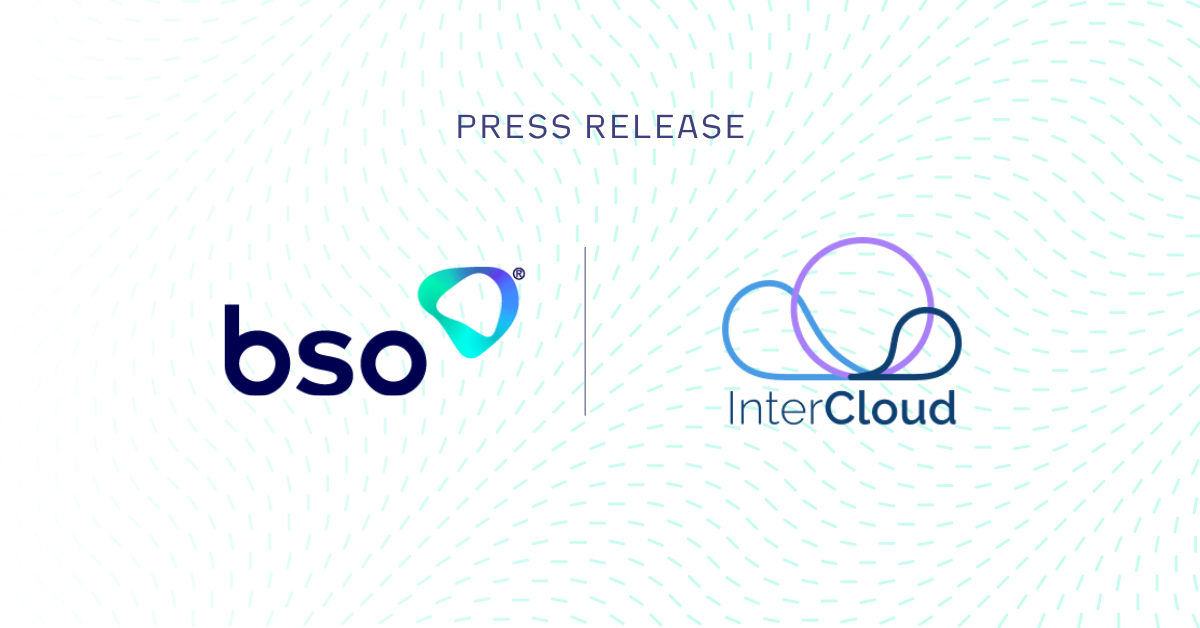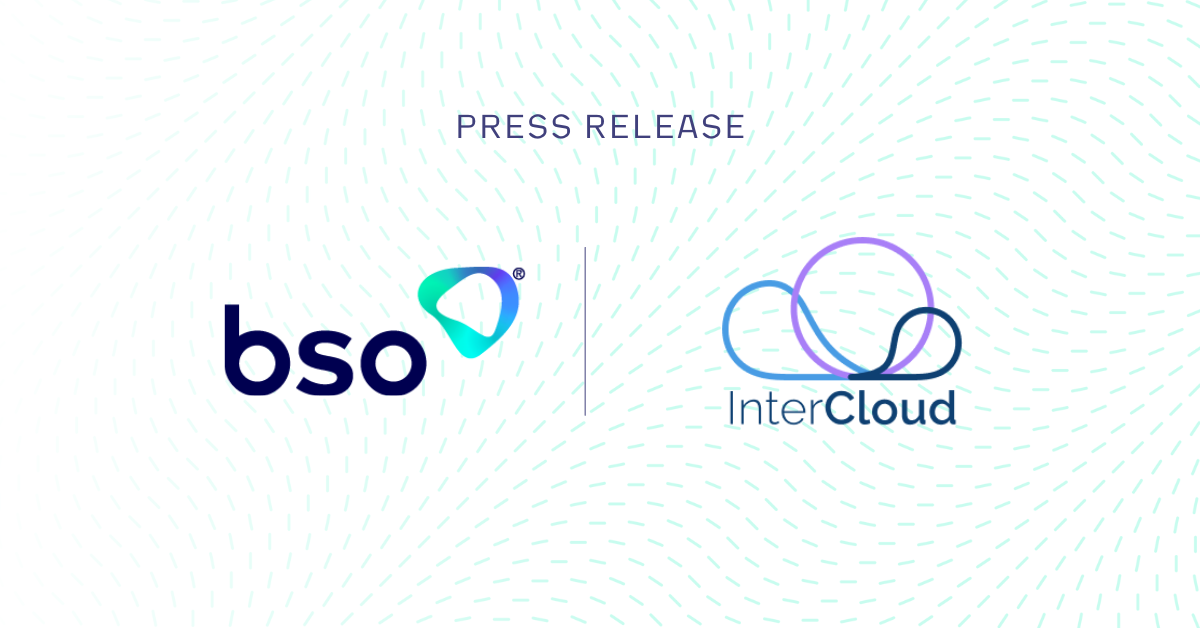
The cloud; everybody talks about it and many firms have adopted it, but no one has the same definition and no two companies have the same infrastructure. Confusing? Unsurprisingly, there are many misconceptions and misunderstandings around the cloud that prevent managers from making the right decision for their business, and notions about public vs. private cloud cost comparisons are no exception.

To get a clearer picture, our very own Global Systems & Managed Services Director, Alexandre Legrix, answers some of the most pressing questions about the costs of public and private cloud.
BSO's Alexandre Legrix on Public vs. Private Cloud Cost Comparisons
Many people were sceptical in the early days of the cloud, do you think this is still the case?
Yes, I do. Interestingly, most scepticism is based on a lack of clear information around the costs involved in private cloud and how this compares to the cost of public cloud. Public vs. private cloud cost comparisons are a mystery to many businesses still.
Private cloud infrastructure is generally perceived as costly due to the consultative element and ongoing management costs. Despite public cloud seeming the far more cost-effective option on the surface, there are some hidden costs attached.
For example, there is a hidden charge attached to the cost of moving data traffic between the various physical and virtual machines used by the public cloud. Public cloud providers generally charge an additional 20% on top of the fees charged by the platform providers themselves.
Another hidden cost of public cloud is the background management and maintenance services, which are of course necessary for any type of cloud infrastructure.
Finally, the question of reversibility is key. When a firm migrates its infrastructure from one cloud to another or to an internal architecture, the costs involved are often underestimated.
Once all operational developments have been tailored specifically for a public cloud, the cost of migrating away from that can quickly become expensive! And that’s not even including the migration costs involved when transferring data to an external platform, which can also be high.
Rightly or wrongly, the more cost-effective public cloud is often associated with DevOps, is this a preconceived idea?
The cornerstone of DevOps is to improve communication between the teams in charge of development and those in charge of operating the infrastructure.
The other pillar of DevOps allows for better agility between development and deployment on the platforms.
Effective communication and the increased flexibility of new code deployment on platforms are generally easier in the private cloud than public cloud, which impacts private cloud costs.
Why? When working with a private cloud provider, the development and operations teams will work closely to determine the exact needs, challenges and business objectives for the client to ensure they get the best solution.
The result? More often than not, a firm will find themselves with a reduced server load resulting in significant cost savings, improved performance and ease of integration with new technologies.
DevOps is well-suited to a private cloud environment. It permits the Ops to accurately adapt the infrastructure to a customers’ specific and evolving needs, starting from the Dev. The costs therefore have to be more transparent, and they generally are.
Ready to make informed decisions about your cloud strategy? Download 'The Ultimate Enterprise Cloud Services Comparison Guide' now and empower your cloud journey!
How can you fairly compare the costs of public and private cloud solutions and which criteria should you use?
Before even going there, you have to ask yourself a couple of questions:
-
Why does my company need flexible and scalable cloud infrastructure?
-
Which business processes would benefit from the cloud?
The decision to migrate some or all of your business processes to the cloud, whether public or private, isn’t one to be made just because it’s à la mode!
Migrating to the cloud should be determined both by core business needs as well as the combined costs. For example, the cost of IaaS (Infrastructure-as-a-Service) differs significantly from the cost of PaaS (Platform-as-a-Service). Once again, the decision will depend on the core business needs and overall objectives.
What are some considerations for an effective public vs private cloud cost comparison?
That being said, the criteria and indicators for an effective public vs. private cloud cost comparison fall into two main categories:
-
Initial costs, which include the upfront costs of installing infrastructure and training teams
-
Operating costs, which include Total Cost of Ownership (TCO) considerations
The importance of Total Cost of Ownership for public vs private cloud cost comparisons
TCO encompasses not only the initial investment but also the ongoing operational and maintenance expenses associated with a technology solution like cloud connectivity. In the context of cloud, TCO analysis is vital for organisations to make informed decisions about whether to opt for a public or private cloud model.
Public cloud often offers lower upfront costs as it operates on a pay-as-you-go model, allowing companies to avoid large capital expenditures. However, TCO considerations extend beyond the initial investment to include factors like data transfer costs, storage fees, and the potential impact of variable pricing models on long-term expenses.
Private clouds, while often involving higher initial capital expenditure, can be more cost-effective in the long run for certain workloads with predictable and steady resource demands.
For an accurate public vs private cloud cost comparison, a comprehensive TCO assessment is needed for businesses to determine the most economically viable cloud solution based on their specific needs and usage patterns. In this TCO analysis, factors like security, compliance, and the opportunity costs associated with downtime or performance issues should be considered.
Capex vs. Opex
The actual costs billed to a firm are generally more transparent in the context of private cloud. Beyond the costs themselves, another important aspect to consider is the structure of the company accounting.
Investment in private cloud can be classified as capital expenditure (Capex), redeemable over the course of several years, whilst the cost of public cloud would usually fall under operational expenses (Opex).
When conducting the final cost-benefit analysis between private and public cloud, the structure of the company’s balance sheet could be the crowning decider!
Summary
Both private and public cloud offer a myriad of benefits to companies looking to tap into the capabilities of cloud technology, but effectively comparing the costs between the two requires careful thought and consideration.
By asking the right questions, using the right criteria, and factoring in TCO considerations, you should be in a position to accurately assess the costs of both private and public cloud options available to your company. These insights, paired with an understanding of your business' accounting structure, should enable you to make the best decision for both your operational and financial needs!
ABOUT BSO
The company was founded in 2004 and serves the world’s largest financial institutions. BSO is a global pioneering infrastructure and connectivity provider, helping over 600 data-intensive businesses across diverse markets, including financial services, technology, energy, e-commerce, media and others. BSO owns and provides mission-critical infrastructure, including network connectivity, cloud solutions, managed services and hosting, that are specific and dedicated to each customer served.
The company’s network comprises 240+ PoPs across 33 markets, 50+ cloud on-ramps, is integrated with all major public cloud providers and connects to 75+ on-net internet exchanges and 30+ stock exchanges. The team of experts works closely with customers in order to create solutions that meet the detailed and specific needs of their business, providing the latency, resilience and security they need regardless of location.
BSO is headquartered in Ireland, and has 11 offices across the globe, including London, New York, Paris, Dubai, Hong Kong and Singapore. Access our website and find out more information: www.bso.co
SALES ENQUIRY
Get in touch now. Find out how we can transform your business_
You might be interested in_
THE BSO DIFFERENCE
The industries we work across_





/Revolutionising-Connectivity%20BSOs-Tailored-Cloud-Solution-for-CryptoStruct-GmbH.png?width=1050&height=550&name=Revolutionising-Connectivity%20BSOs-Tailored-Cloud-Solution-for-CryptoStruct-GmbH.png)
/6%20Cloud%20Best%20Practices%20for%20Financial%20Technology%20Companies.jpg?width=1200&height=600&name=6%20Cloud%20Best%20Practices%20for%20Financial%20Technology%20Companies.jpg)










